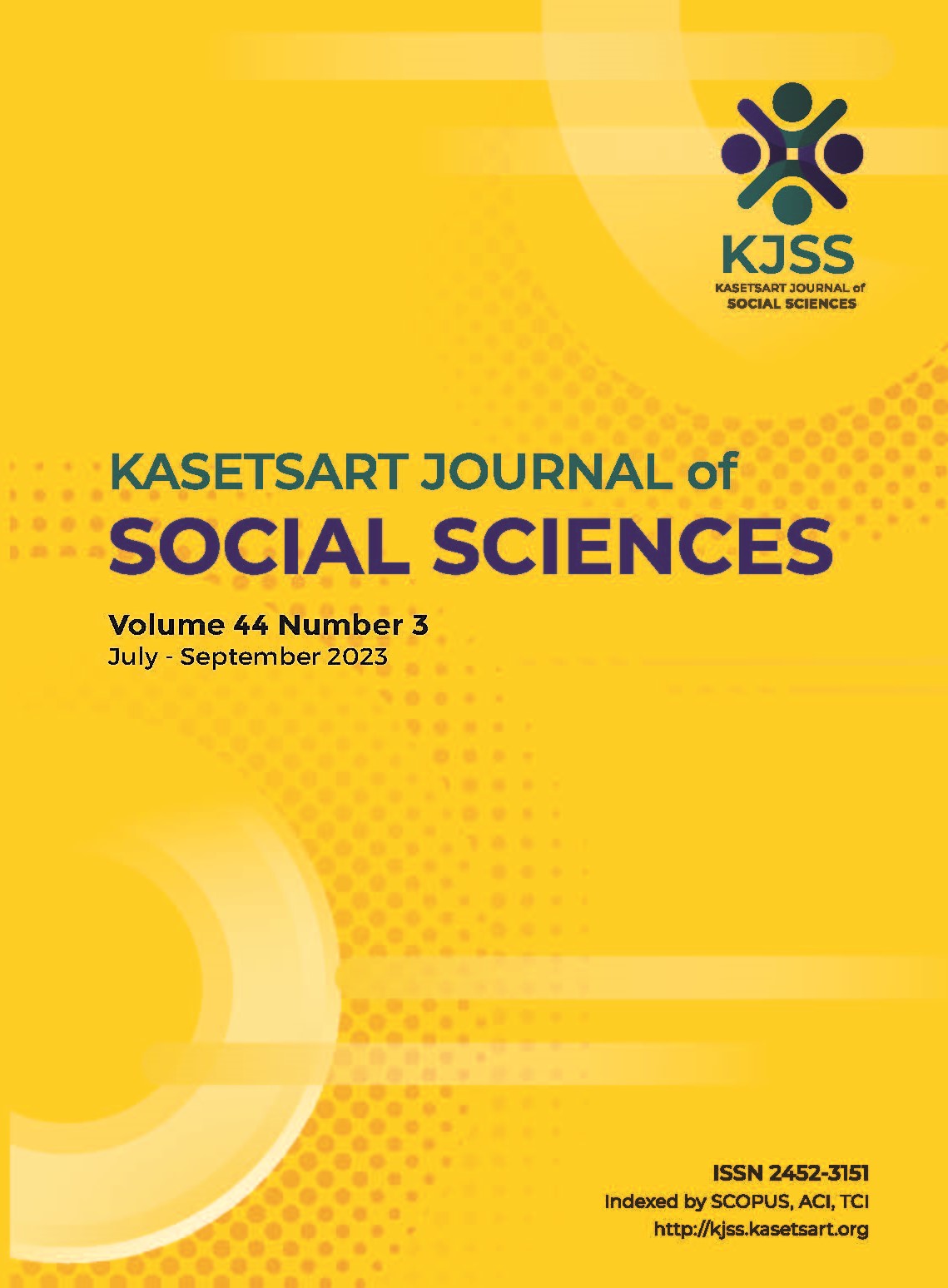Predictors of public consciousness among Thai undergraduate students
Keywords:
public consciousness, Thailand, undergraduate studentsAbstract
Public consciousness is crucial for societies at both the local and national levels. This cross-sectional descriptive study examines public consciousness and determines factors to predict public consciousness among undergraduate students enrolled at Mahidol University, Thailand during the second semester of the 2020 academic year. The research instruments include a self-reported questionnaire, a public consciousness questionnaire, the Parenting Style Questionnaire, the Rosenberg’s Self-Esteem Scale, and the self-efficacy and the modified multi-dimensional measure of perceived social support. The Cronbach’s alpha reliabilities comprised 0.96, 0.66, 0.72 and 0.92, respectively. The collected data were analyzed using descriptive statistics and stepwise multiple regression. The research findings revealed that the mean score of public consciousness was 91.97 (SD = 23.75), indicating a high level of public consciousness. Self-efficacy was the most significant predictor (β = 0.281), the second most significant predictor was social support (β = 0.239), and the third was an authoritative parenting style (β = 0.197). The three aforementioned predictors accounted for 19.8 percent (F3, 435 = 37.837, p .001) of undergraduate students’ public consciousness. From the findings, university workers are recommended to plan activities or interventions to promote public consciousness for undergraduate students. Such interventions and exposure to public awareness by parents and teachers will help students gain confidence to continue helping others and society.
Downloads
Published
How to Cite
Issue
Section
License

This work is licensed under a Creative Commons Attribution-NonCommercial-NoDerivatives 4.0 International License.
This is an open access article under the CC BY-NC-ND license http://creativecommons.org/licenses/by-nc-nd/4.0/










